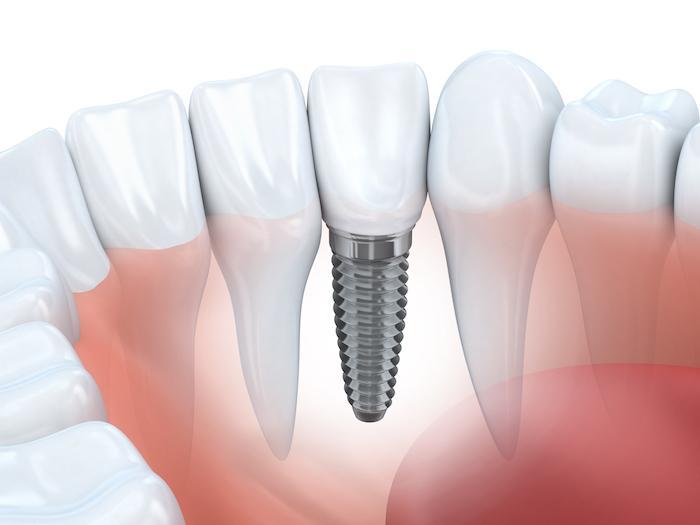Dental implants are a great solution for lost, missing, or severely damaged teeth. Dental implants look, feel, and function just like your original teeth!
At Trident Dental of Houston, Texas, our team of general and cosmetic dentistry experts provide new and existing patients with dental implants. The dental implant process takes some time to be completed, but your results can last a lifetime afterward, making this procedure more than worth it for patients with missing teeth.
The benefits of dental implants
Lost and missing teeth can cause short-term embarrassment and discomfort, as well as dental and jawbone health issues down the road. Gaps in your grin make a cozy corner for debris and harmful bacteria to hang out in your mouth, and your remaining teeth can shift and loosen as a result of long-term empty spaces in your jaw.
Dental implants help you regain the function of lost and missing teeth, as well as preventing long-term complications related to tooth loss. And, since dental implants blend in with your remaining teeth, no one even needs to know that you have them!
How do dental implants work?
In dental implant procedures, we use a metal post, surgically implanted into your jaw, to replace the root of your missing or damaged tooth or teeth. Once your implant is in place, we top the post with a realistic-looking crown that blends in perfectly with your remaining teeth. Dental implants can also be topped with a bridge or dentures.
You may need multiple appointments to complete your dental implants, but once they’re in place, you can expect your results to be long lasting.
Long-lasting results with dental implants
Your dental implant — the metal post that replaces the tooth root, can last indefinitely once it’s fused with your jaw. But the crown (or bridge) that tops your dental implant will need good care and dental hygiene to remain undamaged. With the right care, every part of your dental implant can last a lifetime.
To care for your dental implants, prioritize your teeth-cleaning habits. Brush your teeth twice a day, and floss once a day, making sure to get under the edges of each of your dental implants for a thorough clean. Routine dental cleanings can keep your dental implants in better shape for longer.
If the crowns that top your dental implants do eventually become damaged, the team at Trident Dental can replace your crown. Schedule an exam if you notice any signs of crown damage.
To learn more about dental implants, and to find out if you could be a good candidate for this restorative dental procedure, get in touch with the team at Trident Dental today. Schedule your appointment over the phone, or request an appointment online now.

